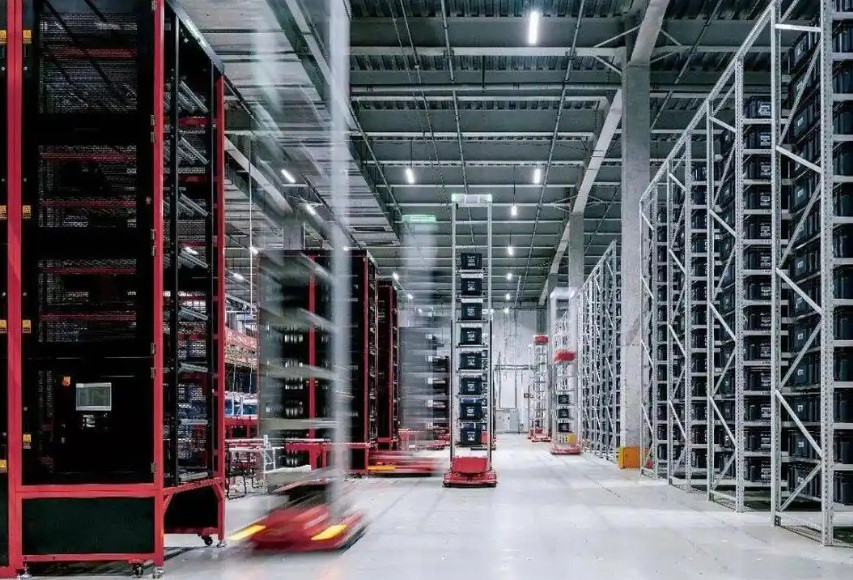
Recently, Chinese e-commerce giant JD.com 'plan to acquire German consumer electronics retailer Cecconomy for 18.5 billion yuan (approximately 2.2 billion euros) has attracted global attention. This action is not only a key milestone in JD International's ten-year business layout, but also marks the paradigm upgrade of Chinese retail enterprises from "product going global" to "ecological going global". Against the backdrop of slowing e-commerce growth and intensified localization competition in Europe, how can JD's acquisition solve the problem of "not adapting to the local environment"? Can the collaborative logic of "supply chain+localization" replicate Amazon's global ecosystem?
Cecconomy owns MediaMarkt, the largest consumer electronics chain brand in Europe, and Saturn, a cost-effective brand. It operates over 1000 stores in 12 countries, covering core markets such as Germany, Austria, and Switzerland. Although its online business accounts for only 25%, its online sales in the first quarter of 2025 increased by 7.4% against the trend, demonstrating the potential for transformation. After JD's acquisition, it can quickly acquire mature offline networks, filling the gap of the European market's emphasis on online and neglect of offline. For example, through the "online order+store fulfillment" model, instant retail services with "2-hour delivery" can be achieved, which has significant efficiency advantages in the high labor cost environment in Europe.
The proportion of logistics costs to GDP in Europe has remained at around 20% for a long time, far higher than that in China. Ceconomy's warehousing system covers major cities in Europe, and its store network can be transformed into front warehouses, shortening the delivery radius. JD plans to apply the inventory model of "50% stock in Chinese warehouse+30% local warehouse+20% cross-border direct mail" to Europe, combined with the mainline transportation of the China Europe freight train "Chang'an", which is expected to reduce logistics costs by more than 30%. For example, in the German market, JD.com can rely on Cecconomy's warehousing resources to achieve "same day delivery" service coverage of 80% of the population, forming differentiated competition compared to the current Amazon Prime's "next day delivery".
European consumers have extremely high brand loyalty towards home appliances and 3C products, with local brands such as Siemens and Bosch holding over 60% of the market share. By acquiring established retailers, JD.com can leverage the local brand recognition of MediaMarkt and Saturn to quickly establish a "quality e-commerce" image. For example, JD.com plans to launch the "JD Europe Preferred" program in Germany, collaborating with Chinese brands such as Huawei and Xiaomi to develop customized products with local European manufacturers, and breaking brand bias through a "technology endorsement+cost-effectiveness" strategy.
JD Logistics has nearly 50 overseas warehouses in Europe and plans to add over 1 million square meters of storage area by the end of 2025, building a "2-3 day delivery" time cycle. After acquiring Cecconomy, its store network can be transformed into a "micro distribution center", forming a three-level system of "central warehouse+front warehouse+store warehouse". For example, in the Dutch market, JD.com has integrated local warehousing resources through the Ochama brand and has achieved "same day delivery" services in 24 countries. After the acquisition, this model can be replicated in core markets such as Germany and France.
The lagging digital transformation of Cecconomy is its core pain point. JD can export its "digital supply chain" technology, including intelligent product selection, dynamic pricing, inventory optimization and other systems. For example, in the cooperation between JD.com and Malaysian electronic payment platform Touch'n Go, inventory accuracy was improved by 40% and fulfillment efficiency was increased by 30% through the WMS system. After applying similar technologies to Cecconomy, it can help increase its online business share from 25% to over 40%, narrowing the gap with Amazon.
JD's ambition goes beyond retail. Its cooperation with the Champions League has covered 150 million European fans and expanded its brand influence through sports marketing; Joybuy platform is piloting a "6-hour delivery" service in London to explore new scenarios for instant retail; And Ceconomy's store network can be transformed into "JD Home" experience stores, providing value-added services such as 3C product maintenance and smart home installation. This "retail+service+technology" ecological model is expected to replicate Amazon's closed-loop logic of "Prime membership+AWS+logistics".
JD's European expansion is not only a business activity, but also a "stress test" of the globalization ability of Chinese retail enterprises. If the acquisition is successful, its "supply chain+localization" model can provide a model for other emerging markets: replicating the "Indonesian experience" in Southeast Asia, jointly building a logistics network with the Noon platform in the Middle East, and expanding product categories in Latin America based on Mercado Libre's traffic entry. This 18.5 billion acquisition may be a crucial leap for Chinese retail companies to transform from "world factories" to "global brands".

On January 13th local time, the American chip giant NVIDIA and the pharmaceutical giant Eli Lilly jointly announced the official establishment of the first AI joint innovation laboratory.
On January 13th local time, the American chip giant NVIDIA …
On January 9, 2026, a subpoena from the U.S. Department of …
When Trump announced on TruthSocial a 25% tariff on Iran's …
Recently, according to reports from KGO TV of ABC and CalMa…
On January 13, 2026, the STOXX Europe 600 Index closed 0.2%…
A recent major trade policy adjustment proposed by the Unit…